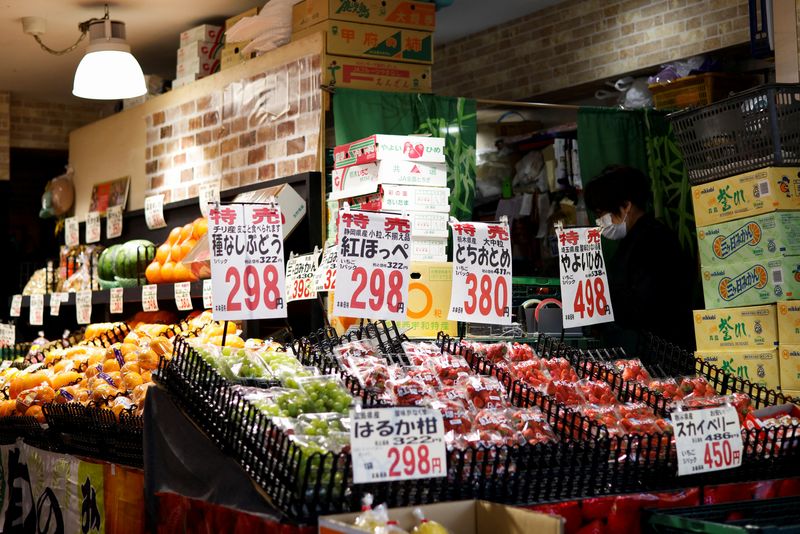By Leika Kihara
TOKYO (Reuters) -Japan's wholesale inflation slowed sharply in November as fuel and commodity prices fell, data showed on Tuesday, a sign of easing cost-push pressure in the world's third-largest economy.
The data underscores the Bank of Japan's view commodity-driven inflation will gradually dissipate and shifts the market's focus to whether domestic demand will be strong enough for the central bank to phase out stimulus.
The corporate goods price index (CGPI), which measures the prices companies charge each other for their goods and services, in November rose 0.3% from a year earlier, BOJ data showed, compared with the median market forecast for a 0.1% increase.
It followed a 0.9% gain in October and marked the 11th straight month of slowdown since December last year, when wholesale inflation hit 10.6%, the data showed.
While the slowdown was due partly to the base effect of last year's sharp rise in raw material costs, some analysts expect wholesale prices to start falling from December on slumping oil prices and the yen's recent appreciation.
"There's a chance wholesale prices may slide in the first half of next year, which would slow consumer inflation," said Takeshi Minami, chief economist at Norinchukin Research Institute.
"Given the outlook for the economy, prices and currency markets, the BOJ may become cautious about normalising easy monetary policy," he said.

Wholesale inflation is among data closely watched by the BOJ as a leading indicator of consumer price moves.
While consumer inflation has exceeded its 2% target for well over a year, the BOJ has stressed the need to keep its ultra-loose monetary policy until price rises are driven more by robust domestic demand and accompanied by stronger wage growth.